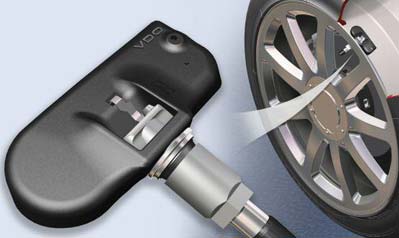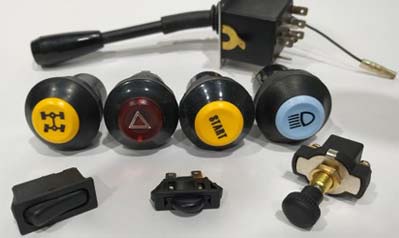Welcome to May Auto Parts Manufacturing & Supplying (MAPMS)
Welcome to May Auto Parts Manufacturing & Supplying (MAPMS)
In the realm of modern automotive technology, the advent of air conditioning systems has redefined the driving experience, providing a respite from the unforgiving summer heat. At the core of these intricate systems lies a crucial component: the auto AC condenser. This article embarks on a comprehensive journey into the world of auto AC condensers, unveiling their multifaceted functions, strategic placement within vehicles, the underlying causes of failure, and the intricate financial aspects tied to their replacement.
An auto AC condensor, short for air conditioning condenser, stands as a linchpin in the orchestration of automotive cooling systems. Often dubbed the "engine" of cooling, the condenser shoulders the pivotal task of transforming high-pressure, high-temperature refrigerant vapor into a serene liquid state. This metamorphosis births a flow of chilled air that meanders through the vehicle's cabin, enveloping passengers in a cocoon of refreshing coolness.
Auto AC condensers are strategically positioned at the front of vehicles, nestled just ahead of the radiator. This calculated placement serves a dual purpose: it exposes the condenser to the external airstream, enabling efficient heat dissipation. As the vehicle propels forward, the condenser ingeniously capitalizes on this forward motion to induce a rush of air through its meticulously designed fins. This intricate dance of heat dissipation triggers the transition of vapor into liquid, an elemental transformation that propels the relentless cooling cycle.
Though robust, auto AC condensers are not immune to the inevitable march of time. An array of factors can conspire to hasten the demise of these components:
Debris and Dirt: The condenser's exposed position renders it a magnet for debris, dirt, and even unwelcome insects. The aggregation of these particles forms a barrier that obstructs the flow of air, impeding the pivotal process of heat dissipation. As a result, the condenser is forced into a state of overexertion, culminating in eventual failure.
Corrosion: Exposure to the capricious elements—moisture, road salt, and other atmospheric vagaries—can trigger the onset of corrosion. The aftermath manifests in corroded fins and tubing, a predicament that diminishes efficiency and can herald the onset of leaks.
Impact Damage: The road, a symbol of liberation, can also sow the seeds of adversity. From airborne debris to minor collisions, the condenser bears the brunt of potential physical trauma that threatens to compromise its functionality and overall effectiveness.
Refrigerant Leaks: In its capacity as a repository for refrigerant, the condenser is vulnerable to leaks. Factors such as corrosion, incessant vibrations, or compromised tubing can precipitate these leaks. The consequences are twofold—diminished cooling efficiency and the imposition of strain on the entire AC system.
The economic facet of replacing an auto AC condenser is an intricate tapestry interwoven with a multitude of considerations:
Vehicle Make and Model: The economic terrain is inherently intertwined with the vehicle's distinct identity. Luxury cars or those boasting sophisticated cooling systems may command a higher replacement cost.
Brand and Quality: Opting for a reputable brand and a high-grade condenser may entail a larger initial investment. However, this choice may yield long-term dividends in the form of enhanced performance and unswerving durability.
Labor Costs: The equation is further colored by labor charges, contingent on the mechanic's hourly rate and the intricacies associated with the installation process.
Additional Repairs: The act of replacing the condenser might trigger the necessity for concurrent adjustments or repairs to other components, amplifying the financial outlay.
Warranty: The presence of a warranty can significantly alter the financial landscape. If the vehicle basks in the protective shade of warranty coverage, the cost of replacement may be partially or wholly defrayed, contingent on the warranty's stipulations.
The average cost of replacing an AC condenser in a car spans a range of $300 to $900, although this spectrum can undeniably widen. This fiscal expanse encompasses the cost of the condenser itself, labor expenses, and the potential inclusion of supplementary repairs. Seeking the counsel of multiple mechanics or repair establishments is a judicious approach to glean an accurate estimate that aligns with the unique characteristics of your vehicle.
In the labyrinthine realm of automotive ingenuity, auto AC condensers emerge as sentinels of comfort, nurturing the circulation of invigorating, chilled air within the vehicle's cabin. Their conspicuous placement renders them vulnerable to the inexorable passage of time and the environmental elements that accompany it. When confronted with a faltering condenser, the financial landscape transforms into a tableau of intricacies, woven from elements such as vehicle type, condenser quality, labor expenditures, and the potential augmentation by supplementary repairs. Vigilant maintenance, encompassing the periodic dislodging of debris from the condenser, yields the gift of an extended lifespan and optimal performance, ensuring a tranquil and pleasurable voyage irrespective of the meteorological extremes that conspire to assail it.
Other Knowledge Articles about Car AC Condensers:
What Is the Function of Car Ac Condenser?
AC Condenser Troubleshooting: Signs of Failure and Replacement Considerations
Popular Automotive Spare Parts
 What is the Lifespan of a Car Ignition Coil? How Long Should It Be Changed?
READ MORE >
What is the Lifespan of a Car Ignition Coil? How Long Should It Be Changed?
READ MORE >
 The Ultimate Guide to Spark Plugs: Nickel vs Iridium, and the Role of Car Ignition Parts
READ MORE >
The Ultimate Guide to Spark Plugs: Nickel vs Iridium, and the Role of Car Ignition Parts
READ MORE >
 Working Principle and Classification of Ignition Coils
READ MORE >
Working Principle and Classification of Ignition Coils
READ MORE >


